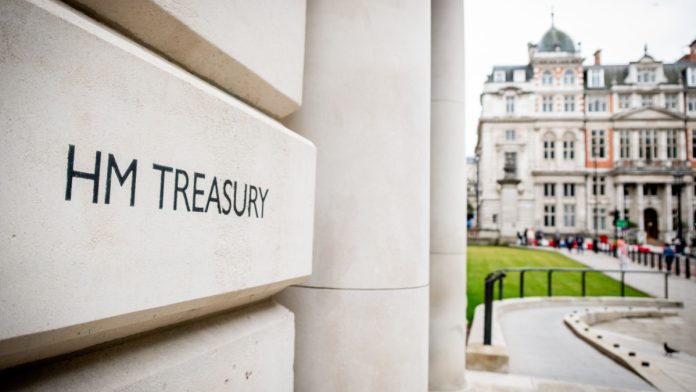The British government is moving to bolster the legal framework around fraud prevention, in response to an increase in Authorised Push Payment (APP) fraud.
Draft legislation published this week has mapped out measures to assist payment service providers (PSPs), including banks, with preventing and investigating instances of fraud.
The key measure of the legislation is to allow payments providers more time to conduct investigations, specifically by extending the timeframe from the current 24 hour window to a 72 hour one.
“This would help tackle authorised push payment fraud, where victims are tricked into sending money to fraudsters,” HM Treasury’s statement on the legislation explained.
“To effectively allow payments institutions more time to investigate cases of APP fraud – which the government notes has increased significantly in recent years – the Treasury hopes to amend the Payment Services Regulations 2017 Act.
“This will of course require parliamentary approval, but the government’s ambitions have already been met with some support, notably from the Lending Standards Board (LSB), which oversees the current framework for APP fraud prevention, detection, and reimbursement.”
Emma Lovell, Chief Executive of the LSB, said: “Authorised Push Payment (APP) fraud has a pernicious impact on consumer trust in financial services, causes long-term emotional harm, and funds organised crime – the government is right to take steps that support banks’ efforts to stop this type of fraud from happening in the first place.
“Our experience of overseeing the only existing framework for APP fraud prevention, detection, and reimbursement – the Contingent Reimbursement Model Code – has demonstrated the importance of taking a consistent, sector-wide approach to tackling fraud.
“The incoming Payment Systems Regulator framework introduces mandatory reimbursement for APP fraud victims from all Payment Service Providers, but it is important that prevention and detection don’t get left behind. You can stop consumer harm from APP fraud by stopping these scams in the first place.”
Extending the timeframe for PSPs to investigate cases of suspected APP fraud by a further 48 hours is not the only policy the Treasury envisions in its amendments to the 2017 legislation..
A related measure will see PSPs permitted to delay execution outbound payment transactions by up to four business days from when an order is received, although there must be sufficient grounds to suspect APP fraud for this to occur.
PSPs will also be required to inform customers of delays in payments and the reason behind the decision, although ‘this will not be required to the extent that complying would be unlawful’ such as contravening AML or economic crime laws.
The legislation will only apply to APP transactions within the UK and in pound sterling, and SMEs can also opt out of provisions with the mutual agreement of a PSP due to a perceived greater need for these businesses to make timely payments to suppliers.
Lastly, although making changes to the 2017 act in relation to outbound payments there will be no changes regarding inbound payments. PSPs can expect the Financial Conduct Authority (FCA) to engage with them following approval of the legislation.
Countering APP fraud has become an area of increased importance for the UK’s financial authorities, including both the Treasury, the FCA and the Payments Systems Regulator (PSR).
The draft legislation published this week by the Treasury follows the adoption of new rules around APP fraud reimbursement by the PSR earlier this year.
“The legislation proposed today is positive, and can be part of a bigger picture approach on prevention and detection,” the LSB’s Lovell concluded.
“A new APP Fraud Prevention Standard is needed to ensure the industry has a consistent approach to stopping scams.”























